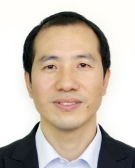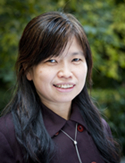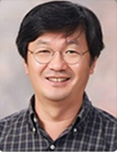 Keynote
Speakers
Keynote
Speakers

Prof. Ming Chen
Zhejiang University
Prof. Ming Chen received his PhD in Bioinformatics from Bielefeld University, Germany. He is a professor and PhD supervisor at the college of Life Sciences in Zhejiang University, and is the leading figure in the field of Bioinformatics at Zhejiang University. He has a long career in scientific research and education of bioinformatics and systems biology. He has published over 200 SCI academic papers in journals such as Cell, Nature, Nucleic Acids Research, and Bioinformatics, and his google scholar H-index is over 51. Prof. Ming Chen is the President of the Bioinformatics Society of Zhejiang Province, China; Committee Director of Chinese Society for "Multi-Omics and Integrative Biology", Committee Deputy Director of Chinese Society for "Modeling and Simulation of Biological Systems"; Committee executive member of Chinese Societies for "Computational Systems Biology" and "Functional Genomics & Systems Biology"; and Committee member of Chinese Societies for "Biomedical Information Technology" and "Biophysics (Bioinformatics) ".
Speech Title: "Bioinformatics Approaches for Biological Age Prediction and Human Aging & Longevity Knowledge Graph"
Abstract: The latest trends in bioinformatics and computational biology are being increasingly driven by the use of artificial intelligence (AI) techniques. They play a crucial role in analyzing large, complex biological datasets, understanding molecular mechanisms of life and disease, and accelerating the development of novel therapies. This talk will focus on the intersection of AI and bioinformatics, specifically on machine learning-based biological age prediction and the human aging and longevity knowledge graph. We propose a composite machine learning-based biological age (ML-BA) model based on biomarkers obtained from medical examination data. This model combines multiple machine learning algorithms to generate a more accurate prediction of biological age. The composite ML-BA model is strongly associated with healthy risk indicators and various diseases. This provides improved aging measurement capabilities and supports the potential application of machine learning in aging research. In addition, we introduce HALD, a text-mining-based human aging and longevity knowledge graph. HALD contains essential entities in the field of aging and longevity, as well as related literature curated from PubMed. HALD enables comprehensive understanding of aging and longevity mechanisms and provides a foundation for developing anti-aging therapies for aging-related diseases. Our approach utilizes state-of-the-art big data analysis techniques in bioinformatics for future studies in aging research.

Prof. Tatsuya Akutsu
Kyoto University
Tatsuya Akutsu received B.Eng. and M.Eng. in Aeronautics and D.Eng. in Information Engineering from University of Tokyo, in 1984, 1986 and 1989, respectively. From 1989 to 1994, he was with Mechanical Engineering Laboratory. From 1994 to 1996, he was an Associate Professor in the Department of Computer Science at Gunma University. From 1996 to 2001, he was an Associate Professor in Human Genome Center, Institute of Medical Science, University of Tokyo. Since 2001, he has been a Professor in Bioinformatics Center, Institute for Chemical Research, Kyoto University. He is a fellow of Information Processing Society of Japan (IPSJ), and was an editor-in-chief of IPSJ Transactions on Bioinformatics for 2006-2009. His research interests include bioinformatics, complex networks, and dicrete algorithms.
Speech Title: "Analysis of Biological Networks Using Graph-Theoretic Concepts"
Abstract: Analysis of biological networks is important for deeper
understanding of biological systems. To this end, we have been
applying graph theoretic concepts such as minimum dominating sets,
feedback vertex sets, and maximum matching
to analysis of protein-protein interaction networks, metabolic
networks, and brain networks. These concepts are related to
controllability of networks, and we have also extended these
concepts to better extracting information from biological networks.
We have been applying these concepts to various biological problems
including inference of cancer-related genes, analysis of aging
genes, comparison of metabolic networks in cancer and normal cells,
and analysis of mouse brain networks. In this talk, we briefly
introduce these graph theoretic concepts, their extensions,
relations to controllability, and applications.

Chair Prof. Yi Pan
SIAT, Chinese Academy of Sciences
Dr. Yi Pan is currently a Chair Professor and the Dean of College of Computer Science and Control Engineering at Shenzhen Institue of Advanced Technology, Chinese Academy of Sciences, China and a Regents’ Professor Emeritus at Georgia State University, USA. He served as Chair of Computer Science Department at Georgia State University from 2005 to 2020. He has also served as an Interim Associate Dean and Chair of Biology Department during 2013-2017. Dr. Pan joined Georgia State University in 2000, was promoted to full professor in 2004, named a Distinguished University Professor in 2013 and designated a Regents' Professor (the highest recognition given to a faculty member by the University System of Georgia) in 2015. Dr. Yi Pan is Fellow of American Institute for Medical and Biological Engineering, Foreign Member of Russian Academy of Engineering, Foreign Member of Ukrainian Academy of Engineering Science, Member of European Academy of Sciences and Arts, European Academy of Natural Sciences, Fellow of the Royal Society for Public Health, Fellow of the Institute of Engineering and Technology, and Fellow of the Japan Society for the Promotion of Science. Dr. Pan has published more than 450 papers including over 250 journal papers with more than 100 papers published in IEEE/ACM Transactions/Journals. In addition, he has edited/authored 43 books. His work has been cited more than 20000 times based on Google Scholar and his current h-index is 90. Dr. Pan is currently serving as Editor-in-Chief of Big Data Mining and Analytics (a top 3% journal), Associate Editor-in-Chief of Journal of Computer Science and Technology (JCST), and Chinese Journal of Electronics (CJE). Dr. Pan has served as an editor-in-chief or editorial board member for 20 journals including 7 IEEE Transactions.
Speech Title: "Metaverse and Smart Health"
Abstract: In 2021, "Metaverse" has become a hot word of the year among the world. Because it is a new concept, different people have different concepts of the Metaverse in their minds. Some people even say that the Metaverse is a lie and pseudoscience. However, I think that since so many companies and experts are pursuing this concept, it must have value, so we must first understand and study it before making a decision to accept, deny, or modify and improve it. As the Metaverse continues to mature, some basic consensus is being reached. This talk will introduce the basic concept, three stages, development history, supporting technology, eight basic features, five elements, and six characteristics of the Metaverse, and explain the applications and implementation challenges of the Metaverse in biomedical scenarios, including medical training, medical surgery, electronic health records/prescriptions, game therapy, digital medicine, disease diagnosis, virtual reality therapy, remote consultation, biological experiments, and pharmaceuticals using Metaverse.
Previous Keynote Speakers

Prof. Tianzi Jiang (MAE, IEEE Fellow, IAPR Fellow, AIMBE Fellow)
The Chinese Academy of Sciences
Tianzi Jiang, Professor and Director of the Brainnetome Center at the Institute of Automation, Chinese Academy of Sciences. He obtained PhD degree at Zhejiang University and BSc degree at Lanzhou University. His research interests include neuroimaging, Brainnetome, imaging genetics, and their clinical applications in brain disorders. He is the author or co-author of over 300 reviewed journal papers, with a total citation of over 36000 from Google Scholar and H-index of 89. He was elected a member of the Academy of Europe, a fellow of IEEE, IAPR and AIMBE. He is the recipient of Hermann von Helmholtz Award, Turan Itil Career Contribution Award, Wu Wen-Jun AI Distinguishing Contribution Award, and Natural Science Award of China.

Prof. Wing-Kin Sung
Chinese University of Hong Kong and Hong Kong Genome Institute
Professor Wing-Kin Sung is a Global Stem Professor in the Department of Chemical Pathology, the Chinese University of Hong Kong. He is the director of the Laboratory of Computational Genomics. He is also the Chief Bioinformatics officer (Honorary) in the Hong Kong Genome Institute. His recent research focuses on identifying genomic mutations from high-throughput sequencing data and on understanding the relationship between mutations (in particular, structural variations) and diseases. Prof. Sung received both the B.Sc. and the Ph.D. degree in the Department of Computer Science from the University of Hong Kong in 1993, 1998, respectively. He has over 25 years of experience in Algorithm and Bioinformatics research. Prior to joining CUHK, Professor Sung was a Professor in the Department of Computer Science at the National University of Singapore (NUS) and was a senior group leader at the Genome Institute of Singapore. He is an expert in the field of bioinformatics, who has been leading the development of a number of bioinformatics software and has over 290 high impact papers published in renowned academic journals, including Bioinformatics, Cell, Nature, Nature Genetics and Nucleic Acids Research. In recognition of his research contributions, Professor Sung was conferred the FIT Paper Award (Japan) in 2003, the National Science Award (Singapore) in 2006, and the Young Researcher Award (NUS) in 2008. He has also served in the programming committee for over 70 international conferences.

Prof. Phoebe Chen
La Trobe University
Professor Phoebe Chen is Professor and Chair at the Department of Computer Science and Information Technology, La Trobe University, Melbourne Australia. She was Head of Department of Department of Computer Science and Computer Engineering, La Trobe Uni. Prof Phoebe Chen is a member of the College of Experts of the Australian Research Council. Phoebe received her BInfTech and PhD from the University of Queensland. Prof Chen has been the Chief Investigator of ARC Centre of Excellence in Bioinformatics. Phoebe has been awarded 30 research grants. Professor Chen has been doing multi-discipline research for more than 20 years and has been associate editors of IEEE Transactions on Neural Networks and Learning Systems, IEEE Transactions on Multimedia etc. She has published over 265 research papers, many of them appeared in top journals and conferences such as Artificial Intelligence, Nature Machine Intelligence, Bioinformatics, IEEE Transactions on Neural Networks and Learning Systems, IEEE Transactions on Biomedical Engineering, Molecular Systems Biology, Nucleic Acids Research etc. She is ACM SIGMM Vice-Chair, steering committee chairs of Asia-Pacific Bioinformatics Conference (founder) and International conference on Multimedia Modelling. She has been on the program committees of over 100 international conferences, including top ranking conferences such as ICDE, ICPR, ISMB, CIKM etc.

Prof. Hongbing Lu
Fourth Military Medical University
Hongbing Lu, Ph.D., professor and director, Faculty of Biomedical Engineering, Fourth Military Medical University. Her research interests cover a spectrum from medical image reconstruction to image analysis for computer-aided detection and diagnosis, including brain network analysis for mental disorder. As the principal investigator of near twenty projects including key projects funded by the National Science Foundation of China, by Ministry of Science and Technology, and by the Military Research Foundation, she has published over 170 research papers including leading journals like Biomaterial, IEEE Trans Med Imag, Euro Radiol, and IEEE Trans Biomed Eng (with single highest citation over 420), holds more than ten US and Chinese licensed patents, and awarded by many prizes including the First Prize of State Science and Technology Award. She is currently the committee chair of the Shaanxi Society of Biomedical Engineering, and has served as an associate editor of IEEE Transactions on Medical Imaging and Medical & Biological Engineering & Computing.

Prof. Tuan D. Pham
Prince Mohammad Bin Fahd University, Saudi Arabia
Tuan D. Pham currently holds positions as Professor in AI and Founding Director of the Center for Artificial Intelligence at Prince Mohammad Bin Fahd University, Saudi Arabia. The Center for Artificial Intelligence is equipped with state-of-the-art computing facilities and infrastructure. His previous position was Professor of Biomedical Engineering at Linkoping University, University Hospital Campus, Linkoping, Sweden. He was appointed as Professor and Leader of the Aizu Research Cluster for Medical Engineering and Informatics, and the Medical Image Processing Lab, both at the University of Aizu, Japan. Before his appointments in Japan, he was appointed as Associate Professor and the Bioinformatics Research Group Leader at the University of New South Wales, Canberra, Australia. His current research focuses on AI and machine learning methods for image processing, time-series analysis, complex networks, and pattern recognition applied to medicine, biology, and mental health. He serves as an Associate/Section Editor for several scholarly journals, series, and conference proceedings. In 2020, Dr. Pham is selected as an Expert in Artificial Intelligence by the U.S. Food and Drug Administration (FDA) Center for Devices and Radiological Health (CDRH) Network of Digital Health Experts Program (NoDEx).

Prof. Taesung Park
Seoul National University, South Korea
Prof. Taesung Park received his B.S. and M.S. degrees in Statistics from Seoul National University (SNU), Korea in 1984 and 1986, respectively and received his Ph.D. degree in Biostatistics from the University of Michigan in 1990. From Aug. 1991 to Aug. 1992, he worked as a visiting scientist at the NIH, USA. From Sep. 2002 to Aug. 2003, he was a visiting professor at the University of Pittsburgh. From Sep. 2009 to Aug. 2010, he was a visiting professor in Department of Biostatistics at the University of Washington. From Sep. 1999 to Sep. 2001, he worked as an associate professor in Department of Statistics at SNU. Since Oct. 2001 he worked as a professor and currently the Director of the Bioinformatics and Biostatistics Lab. at SNU. He served as the chair of the bioinformatics Program from Apr. 2005 to Mar. 2008, and the chair of Department of Statistics of SNU from Sep. 2007 and Aug. 2009. He has served editorial board members and associate editors for the international journals including Genetic Epidemiology, Computational Statistics and Data Analysis, Biometrical Journal, and International journal of Data Mining and Bioinformatics. His research areas include microarray data analysis, GWAS, gene-gene interaction analysis, and statistical genetics.

Prof. Fabio Roli, IEEE&IAPR Fellow
University of Cagliari, Italy
Fabio Roli is a Full Professor of Computer Science at the University of Cagliari, Italy, and Director of the Pattern Recognition and Applications laboratory (https://pralab.diee.unica.it/). He is partner and R&D manager of the company Pluribus One that he co-founded (https://www.pluribus-one.it ). He has been doing research on the design of pattern recognition and machine learning systems for thirty years. His current h-index is 71 according to Google Scholar (April 2021). He has been appointed Fellow of the IEEE and Fellow of the International Association for Pattern Recognition. He was a member of NATO advisory panel for Information and Communications Security, NATO Science for Peace and Security (2008 – 2011). Prof. Roli is the recipient of the 2020 Pattern Recognition Medal of the international scientific journal Pattern Recognition, and the 2020 IAPR Pierre Devijver Award, granted to an outstanding scientist who has significantly contributed to the field of statistical pattern recognition.
 Important Dates
Important Dates05 April, 2024
20 April, 2024
30 April, 2024
 Indexed By
Indexed By


 Supported By
Supported By 



